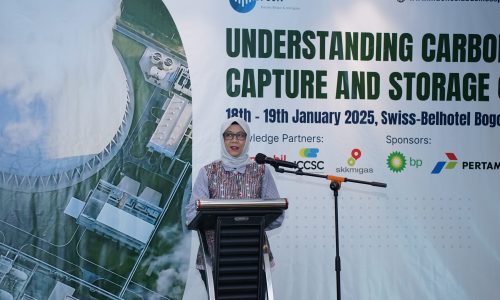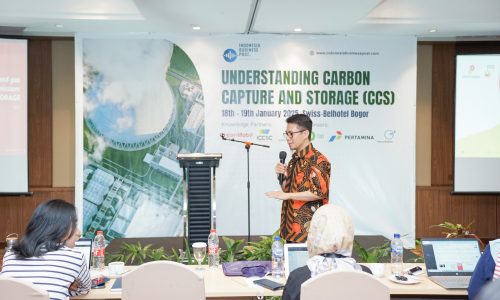Several civil society groups and lawyers called for a total reform on the National Police after a survey showed that the institution had the lowest public confidence in Indonesia. A murder case against a police brigadier by his general has worsened the already tainted police image.
The Indonesian Survey Institute (LSI) latest survey showed that the National Police was a law enforcement institution with the lowest public trust in Indonesia.
“The public confidence to the Attorney General’s Office in August was at 75.3%, followed by the Corruption Eradication Commission (KPK) at 73.2 % while the Police only recorded 69.6%,” said LSI Excutive Director Djayadi Hanan on August 31, 2022.
However, the LSI survey also found that the people still had the confidence in the police to solve the assassination of Brig. Nofriansyah Yosua Hutabarat, or Brigadier J, that is currently under public scrutiny.
An assassination leads to declining trust
On July 8, 2022, Hutabarat, who worked as a chauffeur and personal assistant for Insp. Gen. Ferdy Sambo, was found dead at the latter’s official residence in Duren Tiga, South Jakarta. Sambo, who was later fired from his position as the police Internal Affairs chief, initially told the press that Brig. J had allegedly involved in a shootout with Second Agent E, who worked as his assistant and guard.
The police claimed Hutabarat allegedly harassed Sambo’s wife and opened fire at E who caught his act. Both policemen exchanged fires and Hutabarat eventually died at the scene, the police said.
A month-long investigation on the case, conducted by a team set up by National Police Chief Gen. Listyo Sigit Prabowo, found that there was no exchange of fire. The investigation revealed that Sambo himself, assisted by Second Agent E, shot Hutabarat to death. The police named five people as suspects in the case.
“The majority of the public believe the police can solve the case. The people also widely know that President [Joko Widodo] has repeatedly ordered the police to solve the case. In general, the public agree with the president’s demand that the police will and is carrying out investigation based on the direction of the president,” Hanan explained.
Contradicting statements
So far, the people believe more on the facts revealed by the police investigation later on compared to the earlier version of Sambo’s story.
“The public pay attention to the case and they have the knowledge about it, so that puts a pressure to the police. However, majority of the people are optimistic that the police will solve the case fairly and transparently. They believe with the National Police Chief’s promise that he has conducted the investigation based on the direction from the president. Therefore, the level of public trust to the police increases,” Hanan said.
The LSI conducted the survey between August 13 and August 21, 2022. The survey uses multistage random sampling to 1,220 respondents. The margin of error from the sample is more or less 2.9 % at 95% level of confidence.
Call for police reform
Chairman of the Indonesian National Youth Committee (KNPI), Rasminto, said the National Police could use “Brigadier J” case to carry out reform as well as polish up the police’s tarnished public image.
“National Police reform is the best solution in restructuring the police institution and improving the public image,” he said as quoted by Tribunnews.com on September 2, 2022.
The National Police have a lot of homework, including on the institution’s structural aspect, to reform and to create a police institution that is free from co-optation by power.
“On the cultural aspect, the police need to re-establish their identity, doctrines, values and code of ethics as part of increasing public trust to the police in the future,” Rasminto said.
A number of advocates grouped under the Law and Justice Enforcement Advocate Team recommended President Widodo to carry out internal total reform on the National Police.
During a hearing with the House of Representatives’ Commission III overseeing human rights and security, the team’s spokesman Mangapul Silalahi said that reflecting from the assassination of Brigadier J, the team issued several recommendations.
Firstly, on the National Police Commission (Kompolnas)’s authority. Silalahi said there was a limit on the Kompolnas authority. The Commission can only give recommendation to the National Police. Whereas, in his opinion, the Kompolnas should involve and can intervene in the hearing of ethic violation at the National Police.
Secondly, on the single interpretation of the law by the police. “It is dangerous because the police can interpret the law as they wish that is reflected in the police chief regulations,” he added.
Thirdly, by involving academicians and legal practitioners in the enforcement of ethic violation at the National Police. Currently, Silalahi said, such an enforcement only involved the police internal affairs. “Learning from this case, we propose that the process against ethic violations should not merely involve police element but also involve academicians and legal practitioners,” he said.
Police response
The National Police responded to the suggestions by saying that they had a commitment to take action against all violations without discrimination.
National Police spokeswoman Sr. Comr. Nurul Azizah emphasized that the police had the commitment to carry out cultural, structural and instrumental reforms. “The National Police Chief Gen. Listyo Sigit Prabowo has repeatedly expressed his commitment [on the reform] that should be followed up by all police force,” she said.
According to Azizah, there will be no discrimination in investigating all kind of violations and crimes. “The Police chief always has commitment to take firm actions against crimes like gambling, thefts, drugs, thuggery etc.,” she added.









